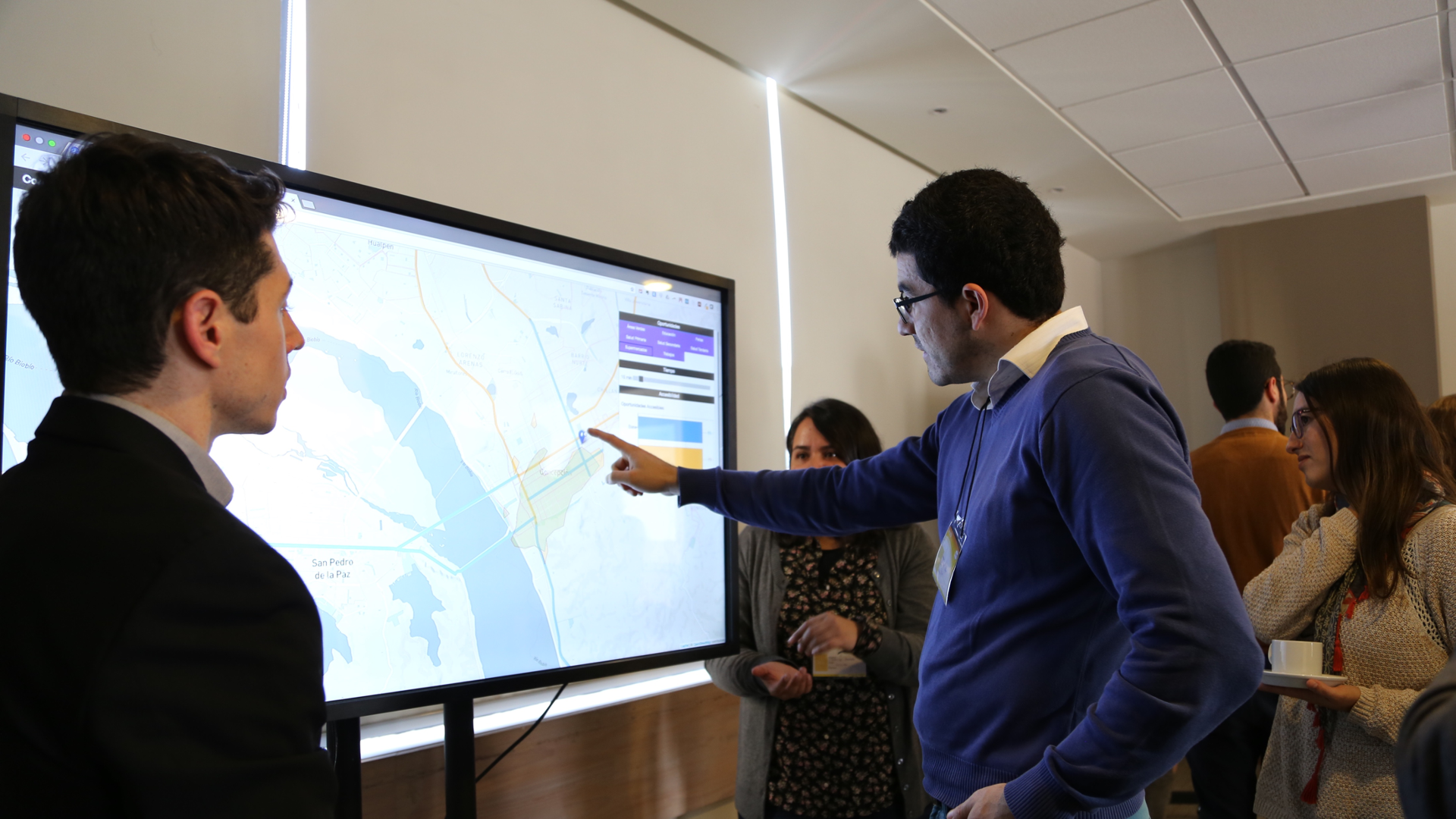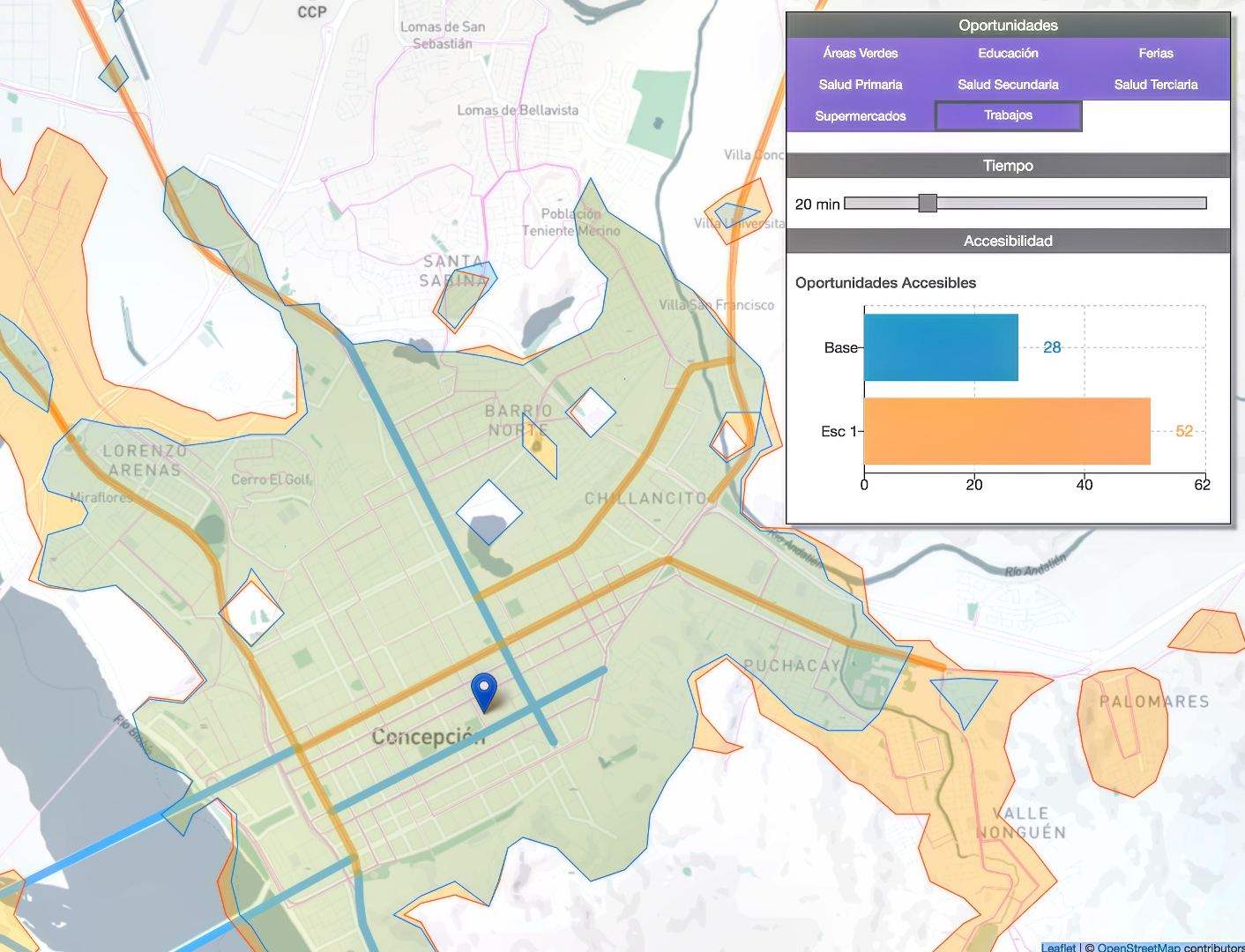Scaling Up Innovative Participatory Design for Public Transportation Planning

Collaborative Accessibility-based Stakeholder Engagement (CoAXs) is an interactive tool developed at MIT for early-stage planning of public transportation systems. Deployed on large touch screens, CoAXs allows stakeholder in small groups to explore how proposed transit projects will affect access to destinations such as hospitals and jobs in their communities. As a Research Assistant for Professor P. Christopher Zegras at MIT, I supported CoAXs workshops in Concepción, Chile; Pretoria, South Africa; and Bogotá, Colombia to assess how the tool could achieve wide adoption in developing cities.
When users drag the cursor to a location, CoAXs immediately displays isochrones that indicate where an individual can reach within a fixed amount of time by transit. A plot on the side shows the number of destinations that fall within the isochrones. The following is a screenshot of the CoAXs instance that I customized for workshops in Concepción, Chile:

The blue isochrone indicates accessibility under the status quo while the yellow isochrone represents accessibility with the proposed transit improvement. The graph on the right compares the number of destinations within those isochrones.
CoAXs is essentially an alternative, customizable interface for Conveyal Analysis, a tool designed for planning professionals. MIT chose to use Conveyal Analysis as the backend, in part, because it is open-source and relies only on commonly available data such as General Transit Feed Specification (GTFS) files that contain information about transit routes and schedules.

In each city, we had participants complete surveys before and after the workshops in order to measure learning and shifts in attitudes, and to gather feedback on the tool. We found the CoAXs workshops did prove effective in helping participants understand the proposed projects and in building consensus. However, we identified several significant barriers to achieving broader adoption. A digital divide has left many city governments without the technical capacity to implement CoAXs. Furthermore, in places where confidence in institutions is low, it proved difficult to attract a diverse group of stakeholders. Finally, because of its direct dependence on Conveyal Analysis, CoAXs would require continuous maintenance to remain functional as Analysis evolves.
A white paper on our study is currently under peer-review for publication in the Transportation Research Record. We won best poster in our category at the 2020 conference.
